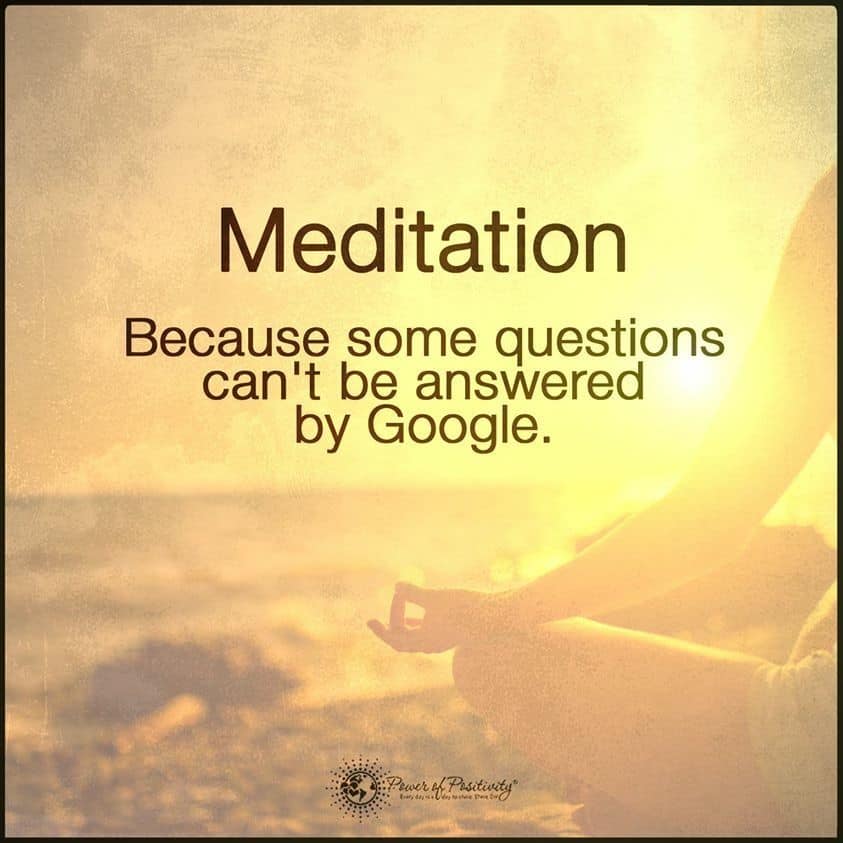Being organized is about more than just keeping things neat and tidy. It’s not just for aesthetic purposes and can actually change aspects of your health is surprisingly significant ways. Here are 8 health benefits of being organized, according to experts behind scientific research.
You’ve probably heard conflicting information about the importance of organization. Some say that a messy environment is indicative of intelligence. Others say that clutter is just plain bad for the body. Unfortunately, it seems like those who say the latter might be more correct.
1. You Eat Better
Did you know that you’re likely to make healthier food choices if your space is organized? This is because cluttered spaces are often stressful, resulting in the urge for the brain to find some method to cope. This then leads to the decision to pick up something less healthy to eat that the brain will receive positively.
Studies have actually found that working in a neat environment for just 10 minutes can make you two times more likely to ditch a chocolate bar in favor of an apple. So if you wonder why you keep wanting to eat junk food, it might be time to give your workspace a clean!
Aside from the obvious benefit to your waistline, eating well comes with a whole host of great health effects, such as:
· Stronger Teeth And Bones
Healthy foods in a balanced diet are likely to provide you with sufficient magnesium and calcium to bolster better bone strength. This decreases your risk of osteoporosis and similar conditions.
· Better Overall Mood
Eating foods with high glycemic load – meaning a high processed sugar and carbohydrate content – can result in decreased positive thinking, worsened fatigue, and higher depressive symptom risk. Most junk foods have a high glycemic load, while healthy whole foods have low glycemic loads.
· Reduced Risk of Heart Problems
Junk food contains the least healthy kind of fat, known as trans fats. These fats link to many diseases, but the most commonly referred to are heart conditions, like coronary disease and stroke. You will seldom find this kind of fat in healthy foods, allowing the component to be safely eliminated from your diet.
· Reduced Risk Of Cancer
A healthy diet is typically rich in vegetables, fruit, and fiber. Combined, these three nutrients have been found, in studies, to lead to a lowered risk of developing cancer later in life.
2. You Find It Easier To Concentrate
The brain is constantly processing things, and clutter and disorganization are things it also has to process. A study found that the brain naturally perceives and almost catalogs whatever is within its view, adding to the processing it is undergoing. This means that a cluttered environment can overload your brain’s visual cortex, leading to difficulty in collecting more important information.
Keeping your environment organized will give your brain more bandwidth to process other things. Better yet, that boosted concentration will boost your productivity, which will boost your mental health, which will boost other aspects of your health, all finally coming back to make your concentration better again. It’s the kind of cycle you want to have in your life!
3. You Have More, “Me Time.”
When you’re organized, you’re able to get the required tasks done more quickly, thus providing you with more leisure time to spend. You won’t have to spend an hour looking for a missing item in a disorganized mess, rush to run errands last minute, or spend too long trying to complete a task that would be easier without stress.
No matter how you decide to use free time, studies indicate that positive benefits to your health can be gained. You can spend this time:
- Taking classes or joining hobby groups
- Relaxing by yourself, doing nothing
- Treating yourself to positive experiences
- Spending time doing hobbies you love
- Reading books or watching shows that make you happy.
4. You’re More Active
An organized home requires the regular performance of chores and similar tasks. Chores actually count as exercise in many ways, especially when they involve a lot of activity. This means that you’re probably more active than those who don’t bother with such tasks if you’re committed to an organization.
This sounds like a bit of a stretch, but research completely confirms these findings. Studies have actually indicated that the cleanliness of a house is a workable and effective predictor of someone’s state of health – more so than other factors that seem more likely, such as neighborhood walkability.
5. You Have Better Mood
When your home is cluttered, you are more likely to feel stressed out and fatigued. This, in turn, can lead to feelings of depression and anxiety that led to a sour mood and decreased positive thinking. Look around – if you can best describe your home as messy, cluttered, or packed with all sorts of unfinished projects, you’ll be more stressed out.
Why does this happen? Well, it has to do with cortisol, which is the stress hormone. In moderation, cortisol is mostly beneficial, as it helps you overcome difficult situations by allocating bodily functions correctly. On a chronic level, though, excessive cortisol production will lead to a huge host of health problems beyond just stress. Here are some effects of excess cortisol in the body:
- Acne
- Blood pressure spikes
- Bruising
- Depression
- Digestive problems
- Fatigue
- Headaches
- Heart disease
- Healing difficulty
- Insomnia
- Thinned skin
- Weakness
- Weight gain
6. You’re More Likely To Stick To An Exercise Routine
It can take a lot of discipline to stick to a plan for working out. If you’re organized, you have a higher chance of managing to do it. But why? Research states that this is because you have practiced your organization skills in your everyday life, thus allowing you to correctly and effectively devise a working exercise routine so you can follow easily.
Some ways that organization may help an exercise routine are:
- The writing of a cohesive exercise plan
- Detailed notes of what should be worked out each day
- Careful progress tracking that motivates you to keep going
- Records of thoughts after the workout that helps you reflect on your current plan and make necessary changes
Naturally, regular exercise helps your body and health in multiple ways, such as:
· Reduced Chronic Disease Risk
Believe it or not, a lack of physical activity is one of the surprising key factors of chronic disease risk. Working out could help you fight off the chances of developing these diseases, and if you already have one, your symptoms might decrease with exercise.
· Better Muscle and Bone Health
If you want to stay strong, exercising helps make your muscles more efficient even as you age. They will absorb amino acids from proteins more easily, allowing them to be built more quickly and stay strong for longer periods of time, say studies.
· Reduced Pain Levels
If you deal with chronic pain, though it can be difficult to do, exercising may positively affect it. The act of working out and getting physical activity has been linked in research to reduced experiences of pain, both on a general and chronic level.
7. You Sleep More Easily
Chaos and a lack of organization can affect your ability to sleep in multiple ways. To put that into perspective, here are some of the positive things that being organized does for sleep:
- Lowering stress levels, which reduces the risk of insomnia and helps you sleep more easily
- Making your bed in the morning, which leads to a 19% higher chance of enjoying a good nights’ sleep
- Getting tasks done in time, allowing you to finish work earlier and head to bed on time
- Having clean, fresh sheets, which leads to a 75% higher chance of sleeping better
- Keeping work out of the bedroom because you finished things on time, maintaining a restful feeling over your room that keeps it as a relaxing sanctuary
Getting enough sleep on its own already has obvious benefits, like feeling energized and refreshed the next day. But it also has a lot of other great effects on your overall health. This includes:
· Better Athletic Performance
Those who perform athletic feats will find that their performance is improved by getting positive sleep levels. Even if you’re not much of a sports person, though, you might notice that a lack of sleep reduces your ability to perform daily tasks with ease. This includes things like walking and gripping items!
· Blood Sugar Levels
A lack of sleep can cause your body to have difficulty processing blood sugar in the best way. This leads to unbalanced glucose levels in your body, potentially resulting in metabolic problems or even type 2 diabetes.
· Heart Disease Risk
When you don’t sleep enough, you’re opening yourself up to a higher risk of developing cardiovascular problems. Studies indicate that strokes, heart attacks, and high blood pressure occur with greater frequency in those who don’t sleep enough.
8. Your Home Will Be Healthier
When a home is cluttered, dust collects on surfaces of piles of items – and beneath them! If you think that dust is harmless and can easily be cleared away with no consequence, think again. Research indicates that a shocking number of things can reside on average, normal house dust, including:
- Decomposing insects, which can harbor bacteria
- Human skin, which can harbor bacteria
- Dust mite feces, which can harbor bacteria and pathogens
- Pollen, which could be a problem if you are allergic
- Arsenic, a highly toxic chemical naturally occurring in the earth’s crust; commonly depicted in media as a poison
- Dichlorodiphenyltrichloroethane (DDT), which is a toxic insecticide
This means that if you don’t properly clean your home often enough, you’re likely to expose yourself to all sorts of small things that can cause illness and disease.
Final Thoughts On the Many Health Benefits Of Being Organized
If you’re not a particularly organized person, it can be difficult to get into the habit of keeping things neat. Hopefully, knowing that your health may rely on your environment’s neatness will help motivate you to be a little bit tidier.
You don’t have to go overboard with perfect color-coding and intricately aligned belongings to reap the benefits of being organized. Simply knowing how to arrange items and tasks for maximum productivity is sufficient!
















 Community
Community

